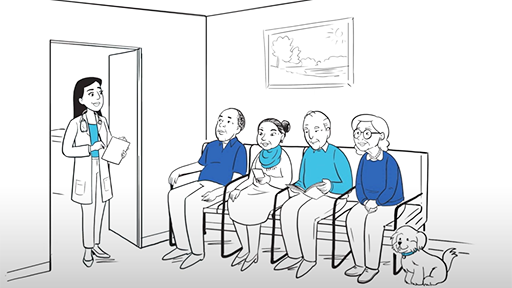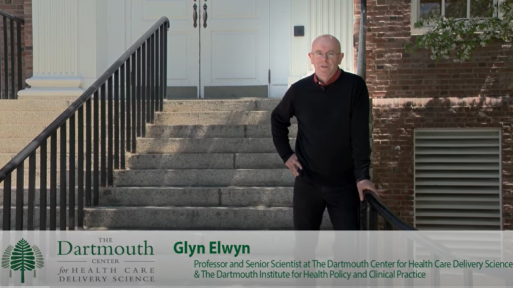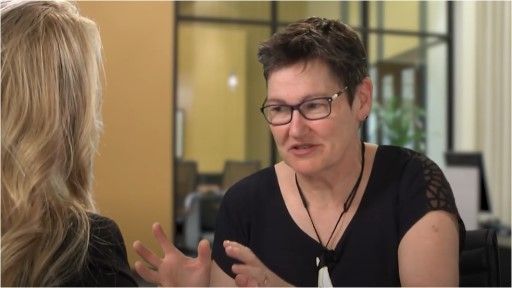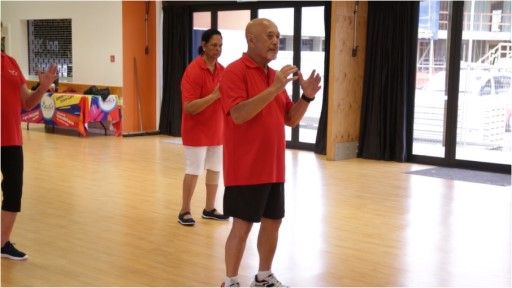
Staying physically and mentally fit is one of the keys to staying well as you age – yet, what works for one person won’t work for another. Keeping ourselves active as we age is good for our body, mind and spirit, as is maintaining a healthy diet and appetite. In this section, you’ll find practical resources about eating well, looking after your physical and mental health, and the importance of looking after your ‘assets’ as you age – brain, teeth, ears and eyes.
Health & wellbeing
10 Ways To Engage In Lifelong Learning - Andrea Leyden

3 Secrets of resilient people: Dr Lucy Hone

73-year-old kuia inspires participation in IronMāori - ACC

Addressing inequity in primary care – The role of genes

Ageing Well - University of Otago, Christchurch

Save and share your favourite Knowledge Lab articles with friends and family.
Ageing with HIV

Clinical decision making for older adults with multiple chronic conditions

Compression garments - benefits and cost
A compression garment is a specialized type of clothing designed to provide gentle, consistent pressure to specific areas of the body. These garments are typically made from elastic materials and are worn snugly against the skin. They come in various styles, such as sleeves, stockings, socks, gloves, each catering to...
Do older people need more protein in their diet?
As we age, our bodies undergo various changes that can affect our nutritional needs. One key nutrient that older adults need more of is protein. In New Zealand, many older adults may not be getting enough protein in their diets, which can lead to a variety of health problems. Protein...
Do our brains lose the ability to learn as they age?
Research has debunked the common misconception that as we age, our brains lose the ability to learn and retain new information; in fact, older adults can continue to learn and develop new skills throughout their lives. A study conducted by the University of California found that the brains of older...
FAST campaign: Stroke Foundation of New Zealand

Find information about health conditions and treatments
We would refer you to the following New Zealand websites: Healthify Ministry of Health - Diseases and conditions (Information about the Ministry’s work in relation to diseases and conditions.) Medsafe (Information about medication and medical devices.) Just a thought (New Zealand developed and operated FREE cognitive behavioural therapy online. Cognitive...
Free online Cognitive Behavioural Therapy - https://www.justathought.co.nz/

Gardening benefits - and getting help when you need it
Gardening is beneficial for older people because it: is often an enjoyable form of exercise. increases levels of physical activity and helps mobility and flexibility. encourages use of all motor skills. improves endurance and strength. helps prevent diseases like osteoporosis. reduces stress levels and promotes relaxation. Older people often list...
Glyn Elwyn - Shared Decision Making

Healthy eating tips for older people
Healthy eating is a major factor in helping people remain in their own homes. Our appetite may decrease as we age but it is still important to eat three meals a day, healthy snacks and foods of high nutritional value. Planning, preparing and cooking meals and keeping regular mealtimes are...
How can I stay safe and healthy over summer?
When the long, sunny days of summer roll in, it’s important to stay mindful of your health. While the season is filled with opportunities for enjoying the warm weather, it’s worth being aware that the heat can present certain risks, particularly for older adults. Read on to discover some practical...
Save and share your favourite Knowledge Lab articles with friends and family.
How to be a friend to yourself - School of Life

I can't be bothered being social these days. Is it worth it?
Socialising improves our mood, our mental health, and indirectly our physical health. On those counts alone it’s worth it. Perhaps you’ve lost a partner, or friend who used to accompany you or who you used to meet up with. Just getting out gives you yet unknown opportunities that you wouldn’t...
Is brain decline inevitable with age?
There are many schools of thought on this subject. We offer two for your consideration. For the majority of us we experience some cognitive decline as we get older and surprisingly this often starts in our 20s. A smaller number of people appear to have some protective features that prevent...
Life Lessons From 100-Year-Olds

Looking through the lens of 1000 lives: Prof Richie Poulton at TEDxDunedin

Maximising the health of our older patients: Professor Ngaire Kerse

Otago Exercise Programme

Shared decision making

Shared decision making - The Health Foundation

Should I get a bowel screening?
Bowel cancer is the second most common cancer in New Zealand and the fourth most common cause of cancer death. It is estimated that around 3,000 new cases of bowel cancer are diagnosed each year in New Zealand, and more than 1,200 people die from the disease. The risk of...
Stay active at home

Tai chi classes: Frank's Story - Live stronger for longer

Save and share your favourite Knowledge Lab articles with friends and family.
Te Taha Hinengaro - Te Whatu Ora Health New Zealand

Te Taha Tinana - Te Whatu Ora Health New Zealand

Te Taha Wairua - Te Whatu Ora Health New Zealand

Te Taha Whānau – Te Whatu Ora Health New Zealand

Te Taha Whenua - Te Whatu Ora Health New Zealand

The one question we need to ask ourselves when we feel anxious

The significance of Te Whare Tapa Whā - Te Whatu Ora Health New Zealand

Understanding and managing your medicine - Health Navigator

What can I do to increase my appetite?
There are many reasons why older people's appetite decrease; cooking for one, ill-fitting dentures, difficulty shopping, finances, and some medications are all factors that could leave them without much of an appetite. However, usually losing your appetite is a symptom of something else. If you are worried about yourself, or...
What can I do to keep my mind active?
Maintaining your mental fitness is as important as staying physically fit, and often the two go hand in hand. Factors such as having regular physical exercise; staying well; seeing your doctor when you are unwell and having a good diet all contribute to good mental health. We can also exercise...
What is a healthy lifestyle?
The following are commonly identified as important elements of a healthy lifestyle. Exercising, Getting enough sleep, Staying connected with other people, Keeping your brain active, Eating a healthy diet, Stopping smoking and reducing alcohol, Managing your health conditions and regularly reviewing your medication with your doctor. Living a healthy lifestyle...
What is going to keep you functioning as well as possible?
A car that runs well, is looked after. So too with us; how we function depends on the maintenance of the vehicle that carries us along. While our genetic makeup and our past lifestyle plays a part, there is a lot that can be done to not only maintain our...
Save and share your favourite Knowledge Lab articles with friends and family.
What is mindfulness?
Mindfulness is a mental state of awareness that involves being fully present and engaged in the present moment, without judgement or distraction. It involves paying attention to your thoughts, feelings, and bodily sensations, and cultivating a sense of calm and focus. For older New Zealanders, mindfulness can be an effective...
Who pays for my dental care in New Zealand?
It’s important to take care of your teeth , but navigating dental care costs can be a challenge, especially when you’re unsure about the financial options available to help. In this article, we’ll tell you about who typically pays for dental care in New Zealand, the average costs of common...
WHO: What is people-centred care?

Why do older people need to maintain good bone health?
Good bone density means that your bones are less brittle and more resistant to breaking. Retaining bone density is particularly important for women, who are more prone to brittle bones, although men also lose bone density as they age too. There are lots you can do to keep your bones...
Why do our bodies age? Physiopedia

Why is it important to eat regularly?
We expect that our diet and appetite will change as we age, and to a certain point eating less as you get older is normal. Mobility issues may cause older people to reduce the amount of physical activity they do, and their metabolism may slow down which results in less...
Why should I worry about my teeth?
As you age , it becomes even more important to take good care of y our teeth. T aking care of your teeth and gums isn’t just about avoiding tooth loss - it's also a key part of maintaining good overall health. R esearch has suggested that the different parts...
Why you should have frequent eye and hearing checks.
Our eyes and ears can be indicators of our health and may be more implicated in wider health issues that was previously thought. Hearing Good hearing has a far greater impact on our health than has previously been understood. Research suggests a link between hearing loss and mental decline and...
Will my long-term condition stay the same? Health Navigator and Health Literacy, NZ, 2019

